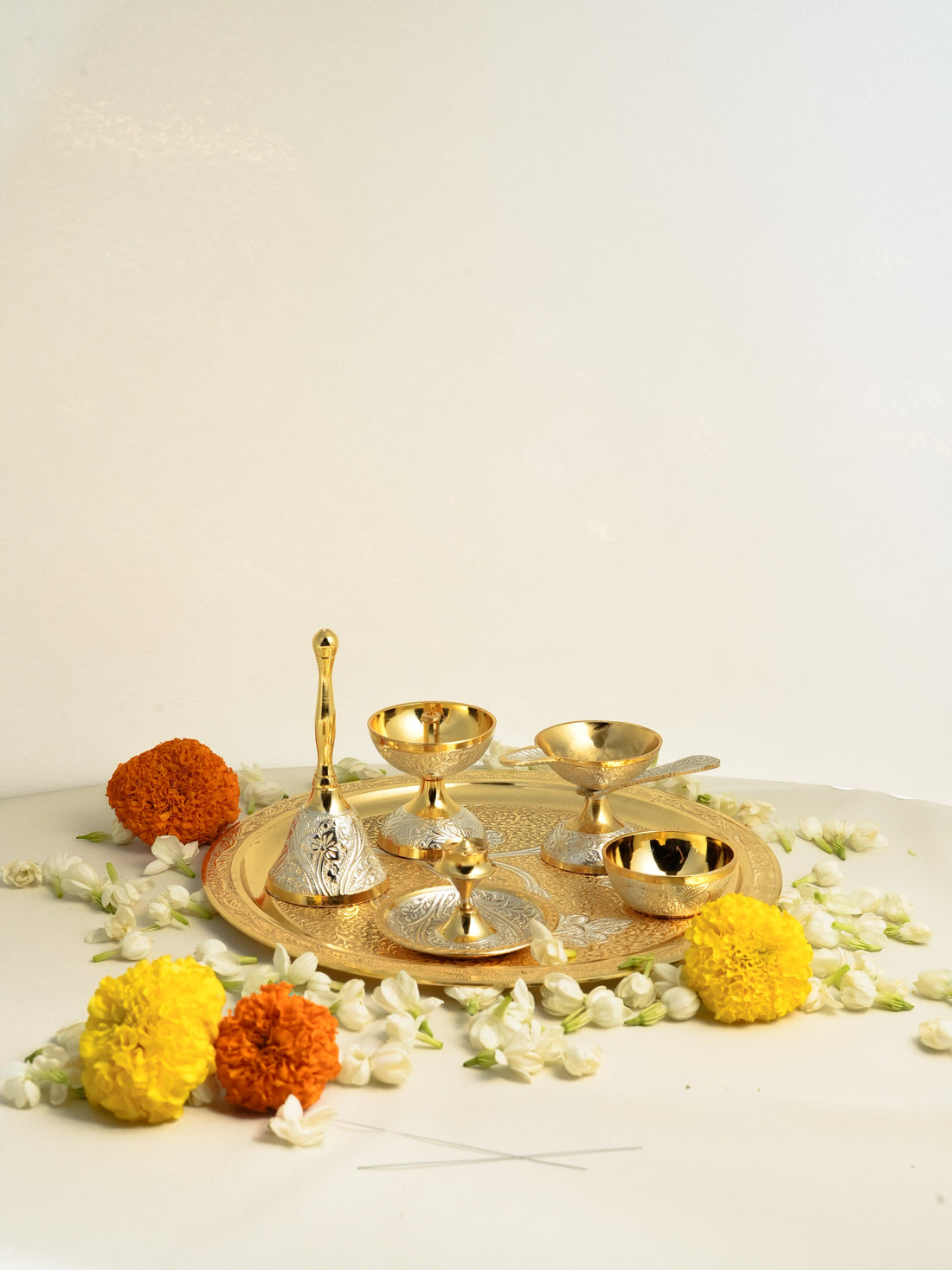
The Timeless Significance of Metals in Indian Culture
Share
India’s rich cultural tapestry is woven with rituals, traditions, and symbols that reflect deep spiritual meaning. Among these, the use of metals like copper, brass, and kansa holds a place of reverence — not just for their beauty and utility, but for their symbolic, health, and spiritual significance. From temple rituals to everyday kitchen use, these metals are deeply intertwined with India’s way of life.
A Legacy of Sacred Rituals
Since ancient times, metal utensils and vessels have played a central role in Indian pujas (rituals). Brass lamps (diyas), copper kalashas (sacred pots), and kansa thalis are not just utensils — they are mediums of spiritual energy.
Copper Kalash: Often filled with water and topped with mango leaves and a coconut, it symbolizes prosperity and purity in Hindu rituals.
Brass Diyas: Lighting a brass diya is believed to ward off negativity and bring divine energy into the home.
Kansa Thali: Used for offering food to deities, it represents sattvic (pure) energy in Ayurveda and spiritual practices.
Symbol of Prosperity and Purity
In Indian households, metal utensils are passed down generations as symbols of prosperity. They are gifted during weddings, housewarmings, and festivals like Diwali and Pongal.
Brass and copper vessels are often part of a bride’s trousseau, signifying wealth and blessings for a new beginning.
These metals are also used in daily offerings and temple donations, emphasizing their sacredness.
Health and Harmony: The Ayurvedic Connection
The use of traditional metals in daily life isn’t just cultural — it’s rooted in Ayurveda, India’s ancient science of life.
Copper is known to balance the tridoshas (Vata, Pitta, Kapha), aid digestion, and support immunity.
Brass helps purify water and is believed to enhance strength and stamina.
Kansa (bronze), a blend of copper and tin, is highly valued for enhancing gut health, reducing inflammation, and improving mental well-being.
These metals are not only used in cooking and serving but also in massage tools, bowls, and healing therapies.
Sustainability and Slow Living
The modern world is slowly rediscovering what Indian culture has always known: sustainability lies in tradition.
Brass and copper utensils are durable, reusable, and biodegradable, making them eco-friendly alternatives to plastic or non-stick ware.
Embracing traditional metalware is also a way of honoring craftsmanship, as most pieces are still handcrafted by skilled Indian artisans.
Continuity of Culture Through Everyday Use
Whether it's sipping filter coffee from a brass davara set, storing water in a copper lota, or serving a meal in a kansa thali, each act is a living tradition — a reminder of the deep connection between Indian homes and heritage.
Using these items is not just about nostalgia — it is about preserving a philosophy of mindful, meaningful living.
The significance of metalware in Indian culture extends far beyond function. It is a powerful reflection of tradition, wellness, spirituality, and sustainability. By incorporating copper, brass, and kansa into daily life, we don’t just carry forward an aesthetic — we uphold a heritage that continues to enrich our minds, bodies, and souls.
